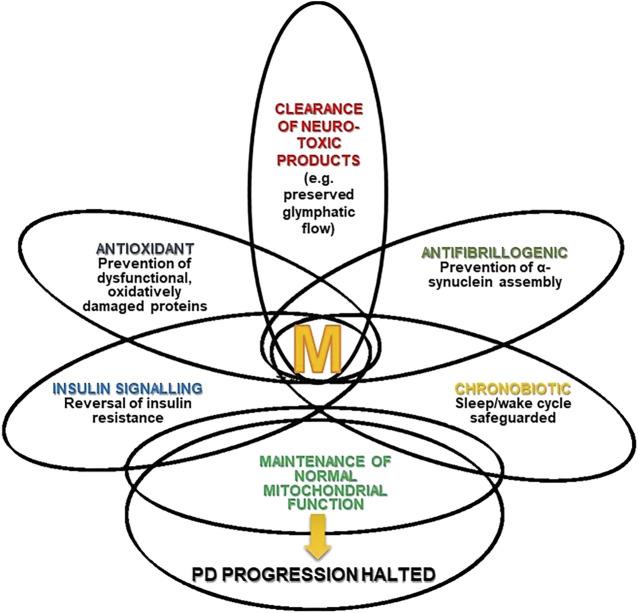Melatonin as a Chronobiotic and Cytoprotective Agent in Parkinson’s Disease 2021 ncbi.nlm.nih.gov/labs/pmc/a...
Thank you so much @Fabnus for sharing this with me.
"Conclusion
Due to the hypnotic and chronobiotic properties of melatonin, its use for the treatment of insomnia has been recommended. Several meta-analyses support such a therapeutic role (Auld et al., 2017; Ferracioli-Oda et al., 2018; Li et al., 2019) Additionally, a number of consensuses concluded that melatonin is the first-line treatment when a hypnotic is indicated in patients over 55 years of age (Wilson et al., 2010; Geoffroy et al., 2019; Palagini et al., 2020; Vecchierini et al., 2020). However, as discussed in this article, clinical studies with 2–5 mg melatonin/day may not be adequate to provide comparison with data on protection against neurodegeneration derived from animal studies. Indeed, studies with doses of 100 mg/day or higher are needed. Melatonin may also be involved in the pathophysiology of other non-motor symptoms in PD, but the current evidence is not convincing enough (Li et al., 2020; Batla et al., 2021) Therefore, more research is needed.
The safety of melatonin is very high and its non-toxicity remarkable. The lethal dose 50 after intraperitoneal injection was 1168 mg/kg (rats) and 1131 mg/kg (mice) but could not be reached after oral administration of melatonin (tested up to 3200 mg/kg in rats or subcutaneous injection of melatonin (tested up to 1600 mg/kg in rats and mice) (Sugden, 1983). There is evidence in dose escalation, phase 1, experiments of the remarkable lack of toxicity of melatonin in humans up to 100 mg (Galley et al., 2014; Andersen et al., 2016). As discussed elsewhere (Cardinali, 2019a), high doses of melatonin have been used in various pathologies without undesirable sequelae, that is, in humans, melatonin has a high safety profile and, in general, is very well tolerated. Currently, the only option for the incumbent physician interested in the use of melatonin as a cytoprotector is the off-label indication of the drug. Therefore, studies on the potential disease-modifying effects of melatonin are warranted. RBD patients may be the first group to target with melatonin. Indeed, melatonin has shown some interesting therapeutic effects in this group, although it must be remarked that high-quality evidence is lacking. Therefore, two birds might be killed with the same tone, as melatonin would offer an immediate clinical benefit in addition to reducing the rate of conversion to PD."
